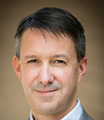Higher education is in transition in the United States, and to keep pace with the changes, institutions need to reevaluate their approaches, according to Jeff Selingo, keynote speaker at the May 19 Celebration of Teaching event. 
Universities need to consider more the needs of nontraditional students, Selingo said to an audience of about 250 in Jesse Hall’s Jesse Auditorium. He also said we have to allow university students to fail once in a while. “We have added a lot of student services that need to be scaled back,” Selingo said of higher education in general. “We have really taken out of college that serendipitous experience about learning how to fail.”
Selingo has reported on American higher education for 18 years. He spent 16 years at the trade publication The Chronicle of Higher Education, eventually becoming its top editor. His essays on higher education have appeared in The New York Times, The Washington Post, The Wall Street Journal and other publications. His most recent book is College (Un)bound: The Future of Higher Education and What It Means for Students.
His talk kicked off MU’s two-day Celebration of Teaching, which offers workshops and discussion sessions on teaching for university faculty, staff and graduate instructors.
Over the past 20 years, a drive for prestige by American universities has resulted in higher tuitions and student debt, Selingo said. During this period, the founding of colleges and universities dramatically increased, oversaturating the market. The increased competition for enrollment lowered the student selection process at many institutions. Selingo predicts that a substantial number of low-tier universities will go out of business in coming decades.
Today’s parents and students are looking not for prestige but for value in higher education, Selingo said. This is happening as many households face stagnant wages and rising college tuition. In 2001, 23 percent of a family household’s income went toward college tuition, Selingo said without citing a source. By 2012, 42.4 percent of a family household’s income was for college tuition.
“Higher education thinks it will always be wanted,” Selingo said. “There is a giant hubris [within higher education], like what was in the newspaper industry.” (Since 2007, half of American newspaper jobs have been eliminated, most studies show.)
Selingo said that universities need to accommodate the changing needs of students. Only 25 percent of enrollment is made up of traditional students — those who graduated high school the year before and are focused strictly on their college education, according to a 2014 study by The Parthenon Group. The rest of enrolled students are adrift, not sure why they are there, or have returned to college to accelerate a stalled career or switch careers, Selingo said. Some students have families of their own to support.
Figuring out how to best serve these diverse groups should be a priority, he said.
Selingo talked about expanding online course options and hybrid courses (classroom and online courses), developing adaptive learning software, and rethinking traditional degree credits. He also encouraged student affairs groups to let students experience some of the consequences of decision-making and taking chances.
He wants, to some extent, to lift the protective shield student affairs groups place around the student body. Otherwise, students will not be prepared to take on the realities of life after college, Selingo said.
“Take risks,” he said. “Learn how to fail. You learn more from failure.”